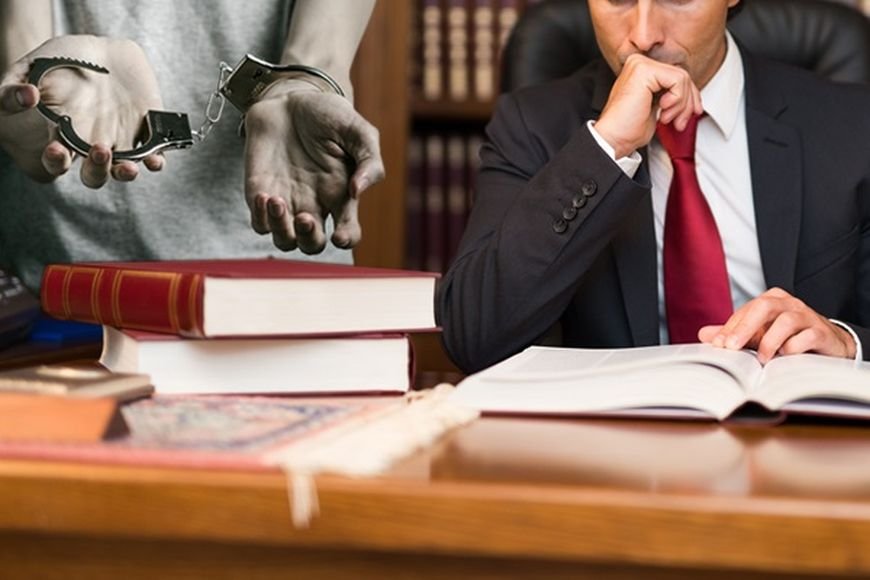In the intricate tapestry of the legal system, criminal lawyers often occupy a space that is both challenging and vital. They are the unsung heroes who step into the arena when a person’s freedom is on the line, armed with knowledge, strategy, and a deep commitment to justice. While society often glorifies law enforcement and celebrates judges for their roles in maintaining law and order, the dedication and sacrifices made by criminal lawyers frequently go unnoticed.
These legal defenders navigate a complex battlefield, where every day presents new challenges and the stakes are incredibly high. They advocate for individuals accused of crimes, ensuring that their rights are protected and that they receive a fair trial. In doing so, criminal lawyers not only defend their clients but also uphold the very principles of justice that underpin our society. Their work requires a unique blend of empathy, intelligence, and resilience, as they strive to ensure that every voice is heard in a system that can often feel overwhelming and impersonal.
The Role of Criminal Lawyers in the Justice System

Criminal lawyers serve a crucial function within the justice system, acting as defenders of individuals accused of crimes. Their primary responsibility is to ensure that their clients receive a fair trial, upholding the fundamental principles of justice and due process. They navigate a complex legal landscape, advocating on behalf of their clients, which not only includes presenting evidence but also challenging the prosecution's case effectively. Through their expertise, criminal lawyers help to maintain the integrity of the legal system by ensuring that every defendant is represented, regardless of the charges they face.
In addition to defending clients, criminal lawyers also play an essential role in advising them throughout the legal process. They provide guidance on plea deals, sentencing options, and potential legal outcomes, allowing clients to make informed decisions about their cases. This advisory role is pivotal, especially for individuals who may not fully understand the legal proceedings or the implications of their choices. By empowering their clients with knowledge, criminal lawyers help them navigate the often daunting experience of being involved in the criminal justice system.
Moreover, the work of criminal lawyers extends beyond individual cases; they also contribute to broader discussions about criminal justice reform. By highlighting systemic issues such as wrongful convictions, harsh sentencing laws, or inadequate legal representation, criminal lawyers advocate for changes that promote fairness and equity within the system. Their insights and experiences can influence public policy and attitudes towards crime and punishment, showcasing their vital role not just in courtrooms, but also in shaping a more just society.
Challenges Faced by Criminal Defenders
Criminal lawyers often find themselves navigating a complex and demanding landscape, one that presents numerous challenges. One significant difficulty arises from the sheer volume of cases they must manage, especially in public defense. With limited resources and time, defenders may struggle to provide individualized attention to each client, potentially affecting the quality of the legal representation. This high caseload can lead to stress and burnout, impacting both the lawyer's well-being and their effectiveness in court.
Another major challenge is the emotional toll of working with clients who are facing serious charges. Criminal lawyers frequently witness the profound effects of the legal system on individuals and their families. The weight of their clients' futures rests heavily on their shoulders, and they must balance their professional responsibilities with the emotional gravity of the situations. Building a trusting relationship in such circumstances can be difficult, as clients may feel vulnerable or skeptical about the legal process.
Furthermore, criminal lawyers often contend with public perception and stigma associated with their work. Many people view defense attorneys as protectors of criminals, which can lead to misunderstandings about the crucial role they play in the justice system. Defenders are essential in ensuring that every individual receives a fair trial and that the legal process is upheld. This misconception can create additional pressure and challenges, as lawyers must advocate for their clients while also working to change societal views about their profession.
Notable Cases: Triumphs and Trials
The history of criminal law is marked by numerous high-profile cases that have tested the skills and resolve of criminal lawyers. One such case is the defense of an individual accused of a crime they did not commit, where meticulous attention to detail and extensive knowledge of the law led to the unraveling of dubious evidence. The lawyer's unwavering commitment to justice not only freed an innocent person but also highlighted systemic flaws within the judicial process, drawing public attention to the importance of competent legal representation.
Another memorable case involved a defense attorney who took on a controversial murder trial that captivated the nation. Despite the overwhelming evidence against the client, the lawyer constructed a compelling narrative that raised reasonable doubts. Through deft cross-examinations and expert testimonies, the defense challenged the prosecution's conclusion, ultimately leading to an acquittal. This case underscored the notion that even in the face of adversity, skilled criminal lawyers can promote justice and truth.
Conversely, not all cases end in triumph. A criminal lawyer faced significant challenges when defending a client whose past convictions overshadowed the current charges. Throughout the trial, the lawyer battled not only legal obstacles but also public opinion. Despite delivering a vigorous defense and arguing for mitigating circumstances, the verdict resulted in a conviction. However, this case emphasized the vital role that criminal lawyers play in the legal system, fighting for their clients' rights and ensuring that each person receives a fair trial, regardless of the outcome.
